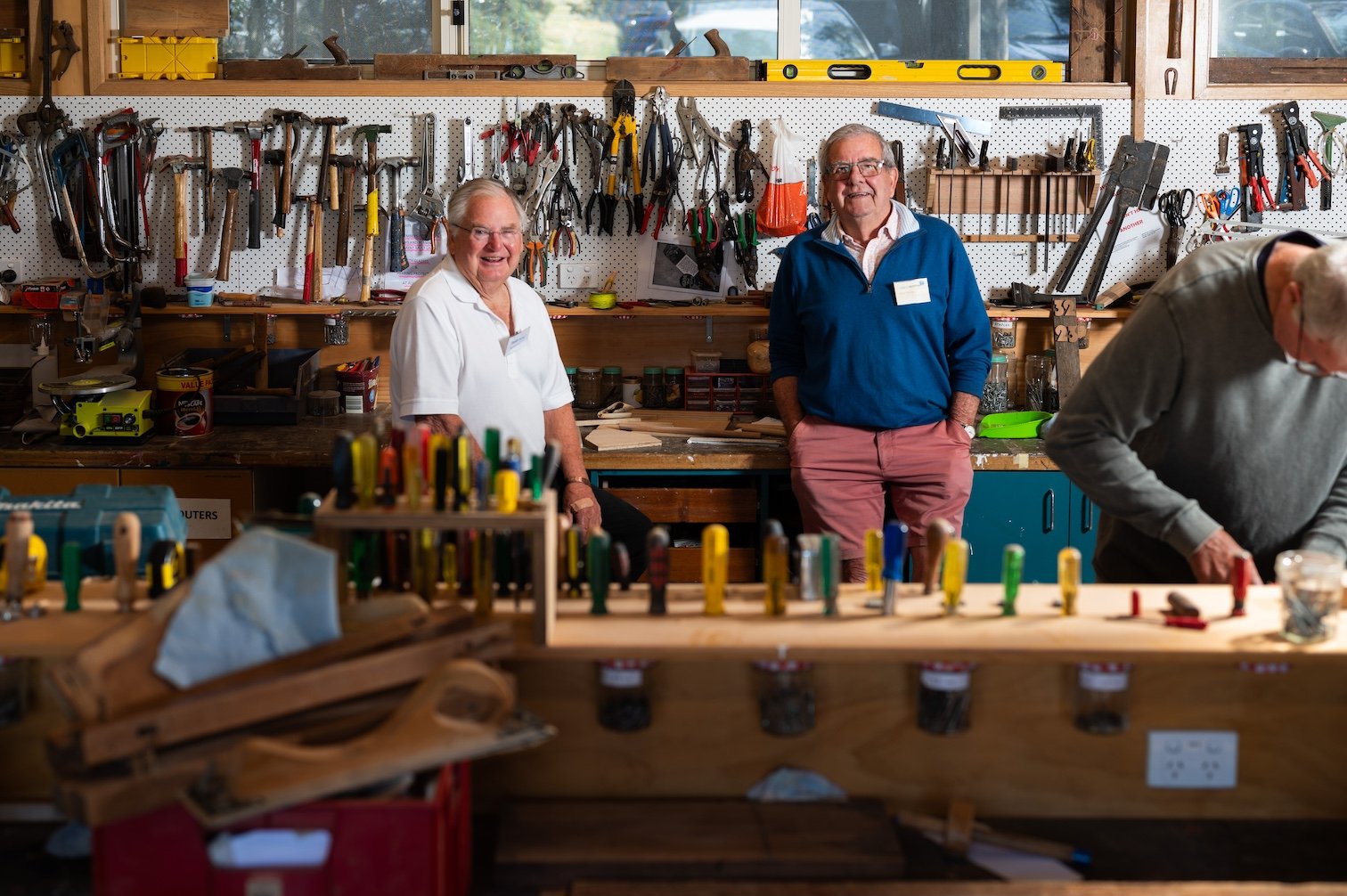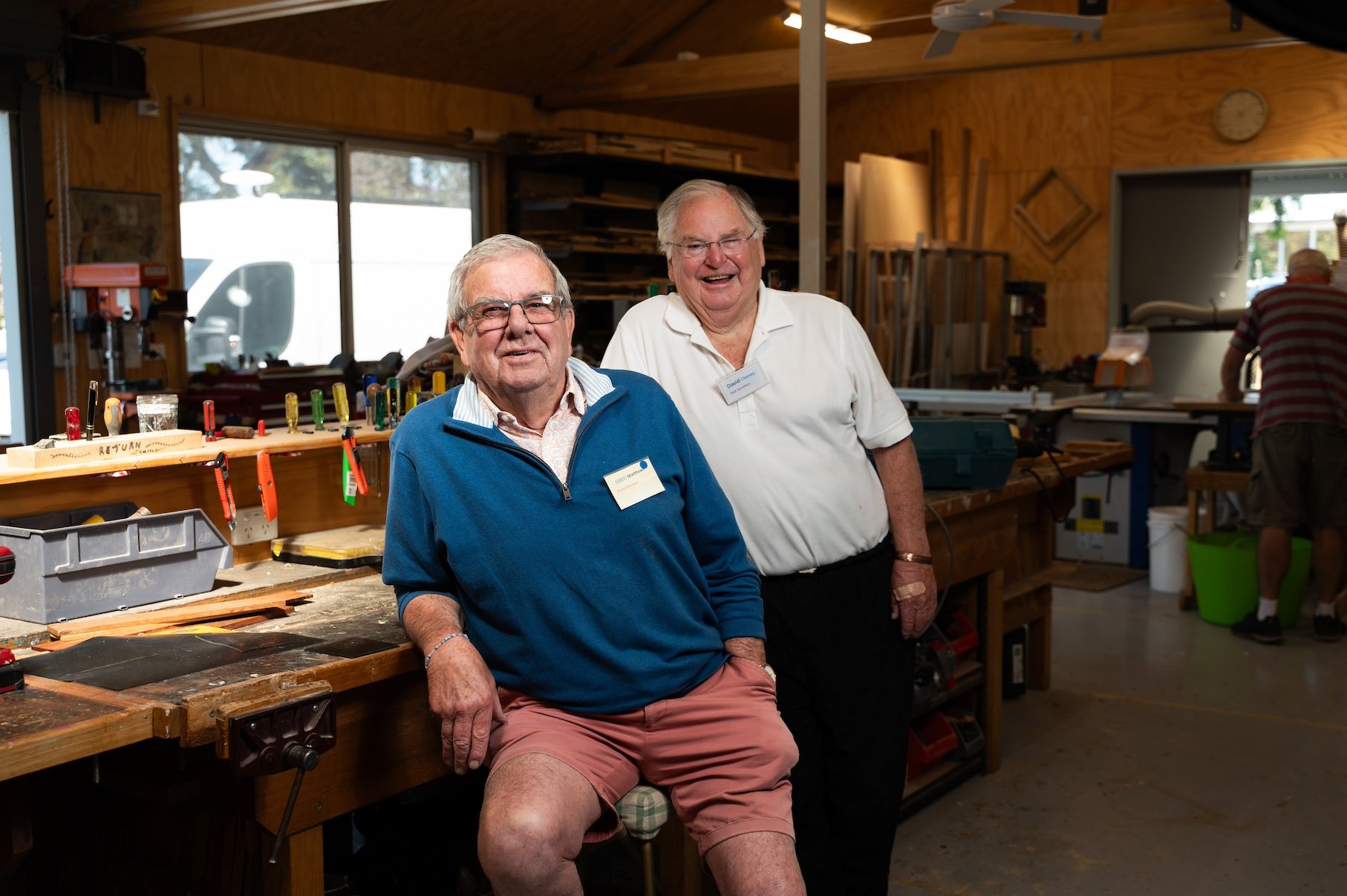North Balwyn Community Men’s Shed
North Balwyn Community Men’s Shed has 80 members and an impressive array of woodworking tools and machines. Members undertake personal and community projects such as making wooden toys and gumboot holders for kindergartens and ping pong bats for the blind association.
The shed has successfully applied for numerous grants to establish and improve their facilities. Electrify Boroondara met shed members David (founding committee member and long-time secretary) and Greg (former treasurer and board member) to understand how they won a grant to install solar panels.
Tell us a bit about the North Balwyn Community Men’s Shed.
David: “We're here to provide a welcoming, relaxed atmosphere for blokes who are retired to get together instead of sitting at home in their pyjamas watching telly.
That’s why we provide everything. We've got people who just come and sit at the table and drink coffee and eat biscuits and are not interested in making anything. We give them an environment they can feel comfortable and chat.”
Greg. “You’ve got to get out of your house or unit otherwise you will never meet new people.”
How is the shed funded?
Greg: “Through the daily charge of $4 a day for anyone turning up. And we charge them an annual fee of 50 bucks which covers about $35 for insurance and the balance goes into helping maintain the shed.”
David: “We don't want people to miss out because they can't afford it.”

David left in white and Greg right in blue. Photo by Julian Meehan
How did you find out about the grants from the Powering Communities Program in 2021 and why did you apply?
David: “Our attention was drawn to the grant by our local member, Josh Frydenberg. We put together a submission which we sent to Josh's PA, and she put it through. The solar quote was about $7,500 and we got $7,500. Greg had already organised the quote some months before.”
Greg: “We just started on that track, then this came up, and it was a good match…We could see the savings involved. That was basically the reason. We were spending about $1,200 to $1,500 a year [on energy] because we're only open three days a week. With the solar panels, we have reduced our power bill by about a third.”
Given your power bills have come back a bit, what have you done with the savings? Have you upgraded your biscuits or reduced the membership fees?
David: “We still have the same Arnott’s Family Assorted and Assorted Creams and occasionally chocolate chip.”
Greg. “We’ve had the daily charge at $3 for five years and then put it up to $4. Obviously with reduced expenses you can keep the daily fee down to $4 which is pretty good. Some sheds charge a lot more.”

Photo by Julian Meehan
Are there any other electrification initiatives, like a battery, that you’d like to do?
Greg. “No. If we were open five days a week, then you’d get a battery.”
There are no community electrification grants available at present, so what do you think community organisations should do to be ready if appropriate grants become available?
Greg: “You’ve got to have somebody who's good with the paperwork. …and you've got to be patient. Somebody said, ‘You don’t take on somebody who is retired - that’s silly!’ We’ve got plenty of time.”
David: “Organisations need to contact the federal member, Monique Ryan, and the state member, Jess Wilson, to get on the list so they are advised when grants come up. We got on the list long before we turned a sod here.
You can establish a rapport with the people that you're dealing with. I got to be on first name terms with a contact from DHHS in Spring Street and one in Canberra just by ringing up and saying, ‘thank you’.
If you don't ask, you won't receive. If you've got a need and your lines of communication are open, then go for it, but you need to be organised. You've got to read every word of the application before you apply. You don't want to fill in 15 pages then find the last condition means you are ineligible. You establish the need, define the cost, and say who is going to do it, so it makes it harder for them to say no.”
